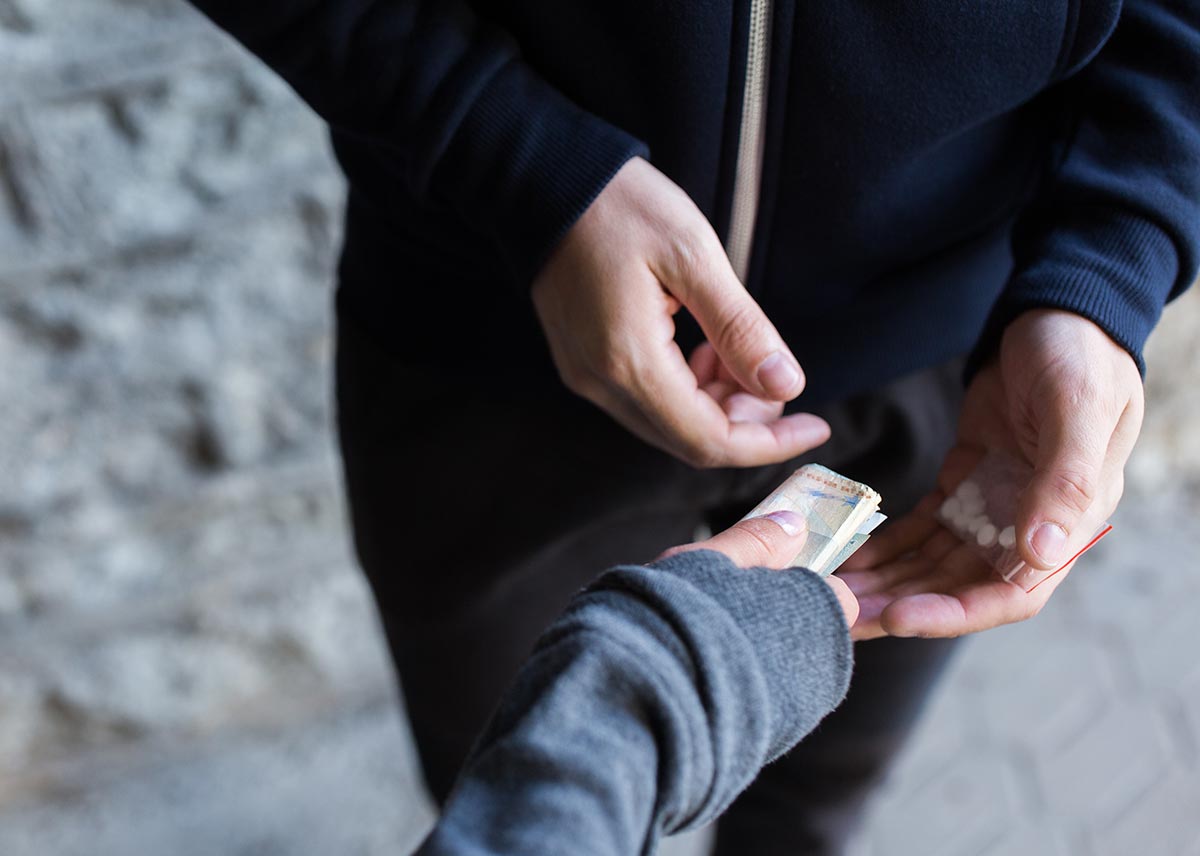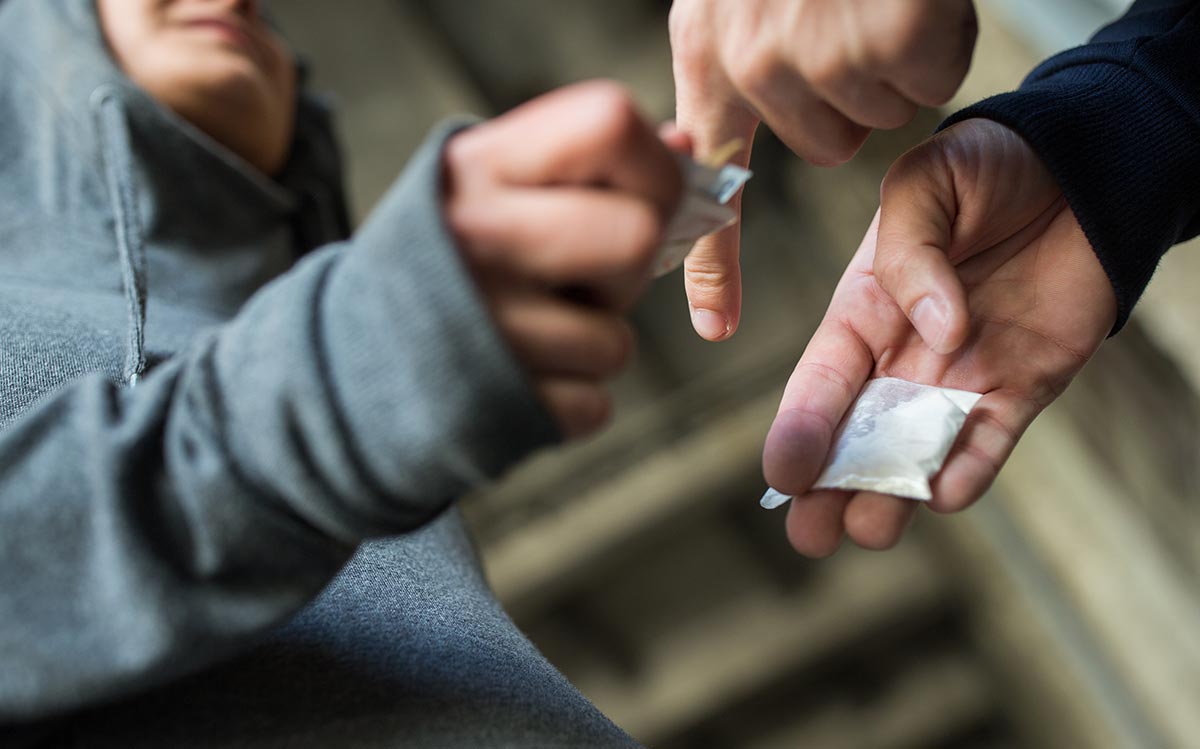What Motivates Someone to Become a Drug Dealer?
Today, more than 24.5 million Americans are addicted to drugs and alcohol. While many are using legal substances or abusing prescription medication, millions more are sourcing drugs illicitly through drug dealers. With 10s of millions of people using illegal drugs, hundreds of thousands of people are choosing to deal drugs, sourcing them and selling them to customers either on their own or as part of a gang or group.
But, what influences dealers to sell drugs? If your loved one is dealing, you should probably know that influences are often more complex than just 'money', and sometimes related to social pressure, debt, addiction, and even poverty. Like addiction, the choice to sell drugs is often a complex one and often involves using.
Peer Pressure
In some cases, people get involved with drugs and dealing because of their friends. This is especially common with teenagers, who often feel pressured to fit in, to 'be cool', and to do what their friends are doing to fit in. If your children are involved with drug dealers or gang members, the chances of them conforming and fitting in by joining in on illicit activities is often high.
Peer pressure can be considerable, especially when there's a monetary reward attached. And, kids may think it's harmless at first, agreeing to sell relatively low-risk LSD tablets at a party in exchange for money – may quickly become hooked on either the thrill of being caught, the thrill of having extra money, or simply caught up in the 'game'. For example, teens and even adults who dabble in selling for organizations and gangs may find that they are unable to leave when things get too risky – simply because the gang threatens to blackmail or hurt them to prevent risk to their industry or money-making. And, the more a person incriminates themselves by selling, the more difficult it is for them to leave safely and without facing legal repercussions.
Environmental Factors
Environmental factors like family, stress, poverty, and depression all play a very large role in both drug abuse and drug dealing. Selling drugs represents a fast way to earn money in the USA, often more quickly than any other legal profession. Nearly everyone has seen TV shows like Breaking Bad where the hero/villain is forced into difficult decisions and begins manufacturing methamphetamine to pay his medical bills and provide for his family. Unfortunately, this isn't too far from the truth, because many drug dealers initially resort to selling to provide for their family, pay the rent, or otherwise cover basic financial needs. While this can morph into selling to pay for a certain lifestyle or that of a partner or spouse – environmental factors of need are often huge contributors.
Similarly, individuals who feel that they are outcast, have nothing else to lose, or who have no opportunities outside of breaking the law (such as convicted felons who have difficulty getting a traditional job) may easily resort to drug dealing to pay bills. In situations where environmental factors like stress and poverty play into dealing, simply getting the dealer to stop is often not a solution. Instead, they have to be able to find an alternative solution to provide for themselves or for family – or face the reality that dealing is too high of a risk to be a sustainable option.
The "Thrill" Effect
Many people find breaking the law to be thrilling. In most cases, drug use goes down when it's legalized. People who are looking for excitement and who want an expensive lifestyle often resort to drug dealing, not only because they want the money, but because they're bored. This is why even well-educated persons with good jobs can sometimes be found dealing.
Dealing can help people to create the type of life they want as one of excitement, where they are 'tough', or where they break outside of society and its restraints. While the concept may seem simple, the motivations can be extremely complex, ranging from bored middle-class to rich kids looking for a thrill to people who honestly believe that they're doing the right thing by getting cannabis or ecstasy to people who 'need' it.
Drug Addiction
One of the most common and most influential factors behind drug dealing is addiction. Buying is often expensive, and many users cannot maintain a traditional job while hooked. The process of buying consistently over a long period of time sets users up to become dealers, because they learn who buys, how to avoid the police, and create a network of sellers.
As a result, many addicts eventually turn to dealing as a means of supporting their own habit, making connections with suppliers – and then dealing small to medium quantities of street drugs.. This can range from developing complex relationships with local manufacturers and suppliers to sourcing and selling prescription medication or even learning to manufacture themselves. Many drug dealers are users themselves, though not always the same drug they're selling. For example, most cannabis dealers are heavy users themselves, and may branch out into selling to fund their habit. Similarly, cocaine and pill users are often addicts themselves – only dealing may put them in danger because of the increased volume of substances available for use – and therefore the increased risk of addiction and even overdose.
However, not every drug dealer is addicted or even using, as some approach drug-dealing like a business deal – using it to fund travel, cars, and luxury for themselves and their family.
Getting Help
If you or a loved one is resorting to dealing drugs, there is help. If drug addiction is a factor, you can seek help under the privacy protections of HIPPA law, which ensures that your medical professional cannot report you to the authorities unless you are harming someone or have harmed someone. If you suspect, but aren't sure, that your love done is dealing, talk to them about it. Drug dealing and usage are federal crimes and can result in a decades-long prison sentence. Getting help, getting out of dealing is the only way to protect yourself for the future.
If you're struggling and you suspect that your loved one is using and dealing drugs, you can reach out to a professional counselor at a rehab center for help. Professional advice will help you to make the best decision for your specific situation, so that you can work to either report your loved one to the police before they are caught or get them into rehab and professional treatment so that they can recover in a safe environment.
Most people sell drugs because they feel they have to, either because of money, social pressure, or an addiction. It doesn't have to be that way. There is help, and you can seek it out. Please feel free to contact Anaheim Lighthouse, a modern and effective addiction treatment center in Southern California, we’re here to help.















